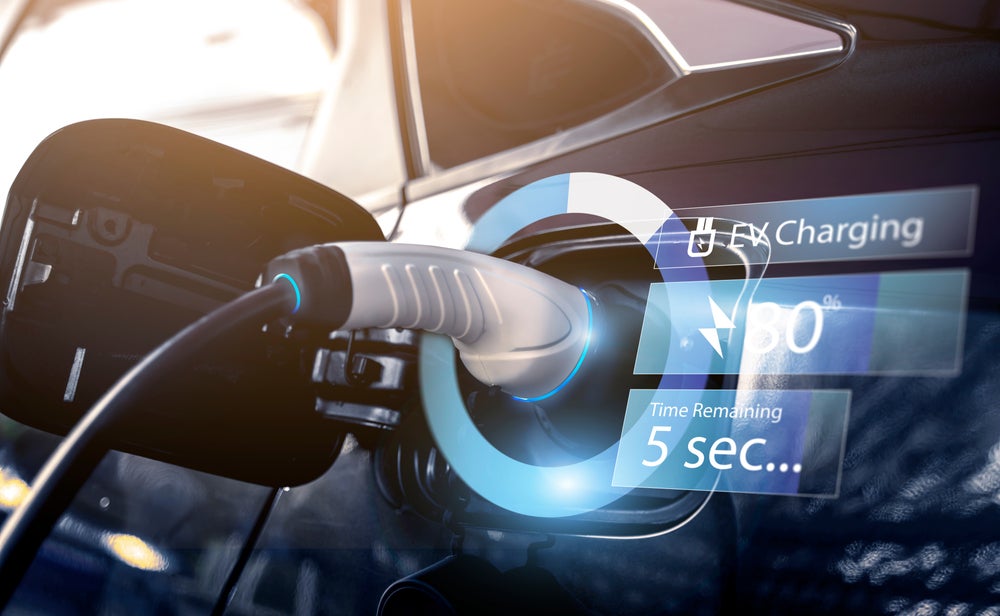
As the share of electric vehicles sold and in use rises, governments across the world may be forced to consider new tax measures to meet the revenue gap caused by lower numbers of heavily taxed ICE vehicles.
We spoke to Pete Kelly, analyst at LMC Automotive (a GlobalData company), about this emerging taxation issue, with particular reference to the situation in the UK.

Discover B2B Marketing That Performs
Combine business intelligence and editorial excellence to reach engaged professionals across 36 leading media platforms.
With governments setting aggressive targets for fossil-fuel engine phase-outs, this is a sizeable emerging taxation black hole to deal with isn’t it?
Yes, it looks likely to become far more significant. In the earlier days of Battery Electric Vehicle (BEV) market expansion, this always seemed likely to become an issue, but was something that governments could focus on later, once the market obtained a significant size. Clearly, with BEV sales taking off strongly in the UK and elsewhere, we have now reached that point and taking decisions on this has become unavoidable.
The zero-rate annual circulation charge (in the UK, called Vehicle Excise Duty, or VED) for BEVs is going to become increasingly costly in government revenue terms, even if it supports the uptake of BEVs, so this is the likely first action on this front.
In the case of, say the UK, where is the potential tax revenue deficit most acute? Is it in fuel tax at the pump?
This year, VED is expected to bring in about £7bn in tax revenue – not a small sum. But by far the larger sum – at £28bn – comes from fuel duty, mainly for petrol and diesel consumption. Stronger BEV uptake is going to hit both VED and fuel duty government income streams. We estimate that there will be 1.6-1.7 mn BEVs on UK roads by 2025, the point at which the government is reported to be looking to remove the zero-rating for VED. This represents about 5% of the total car fleet. And it will grow every year. Similarly, while some tax is paid on electricity, depending on where you charge, it will bring in lower revenues than that for ICE vehicles. So the tax impact is only partially addressed by the proposed VED change.
It is also important to note that the UK is not the only country where some incentives are likely to weaken or be removed. Norway is stepping back from some of the most generous EV incentives in the world, while Germany is dropping its Plug-in Hybrid incentive next year and will likely reduce BEV support also. However, both France and Germany look to be sticking with up-front BEV incentives, at least for now. The UK was among the first to remove its up-front grant for a BEV purchase and, with an increase in annual taxes, may again be an indicator of where others will follow.
What kind of solutions can tax authorities consider to plug the government revenue gap?
Perhaps the fairest way to handle overall taxation for road users is road pricing. In a way – and before workable BEVs became a genuine proposition – fuel duty carried out the road usage taxation role. The more miles you travelled by road, and/or the more polluting your vehicle was, the more you paid. But the ability to be taxed less when using a BEV provides a solid incentive to switch, use case permitting. Road pricing also has the benefit of being able to incentivise off-peak travel, with a pricing mechanism to mitigate congestion, something that fuel duty cannot do.
Are technical issues or technologies an obstacle?
The likely technology for road pricing – an on-board black box monitoring system of some kind, which can record location and time – might be relatively easy to roll out quickly. Similar technology is offered as a way to reduce vehicle insurance premiums. But there may be pushback against the mandating of such technology, specifically on privacy grounds. In many countries, strong user protections would need to be built in, which could delay or even block such solutions.
If taxes on EVs go up, will some argue that such a move runs counter to encouraging more take-up of EVs on the path to a net zero carbon economy?
There seems little doubt that, in markets for things like vehicles, if you make something more expensive, then unit sales will be lower than without that price increase. BEVs are relatively expensive already of course and chipping away at one of the things that made the total cost of ownership more favourable would slow growth in BEV markets.






